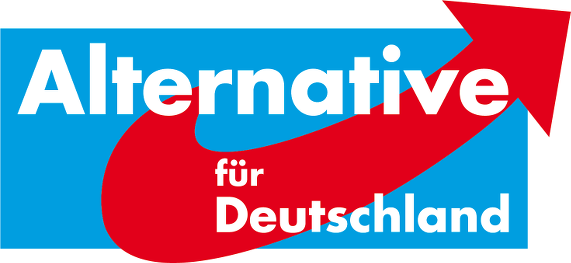Democrat May-June 2013 (Number 135)
'Alternative for Germany'
by Horst Tebert of German Foreign Policy Group

Since its founding in early February 2013, there has been much debate about a new German party - the "Alternative for Germany" ("Alternative für Deutschland", AfD). The reason why there is such a strong interest in it lies in its main political aim: the dissolution of the eurozone.
Until today, the German government seems to have done everything to keep the eurozone intact - even though on German conditions which means that Berlin used the euro crisis to force a severe austerity policy on the EU.
Generally speaking, keeping the eurozone intact corresponds to German interests. As a huge part of all German exports are delivered to eurozone countries (37.5 percent in 2012), German companies clearly profit from the single currency which makes it possible to avoid costly currency exchange. In addition, the euro is weaker in comparison to the German Mark. This favours German exports to non-European countries, for example to China.
In spite of the fact that, until today, this is true of a huge majority of German companies, especially of most of the big trusts, there is a rising concern among some German entrepreneurs, mostly among the owners of small and medium-sized businesses. A growing number of them believes that it is becoming too expensive and too risky to maintain the eurozone. Additionally, many fear that rescuing the eurozone will lead to inflation which in turn might heavily damage their interests. This group of entrepreneurs, along with neoliberal economists, has been protesting since the spring of 2010 against the measures aimed at rescuing the eurozone. In February 2013 some of them agreed to enter the political arena by creating a new political party - "Alternative for Germany".
The founding of the "Alternative for Germany" is an exceptional event insofar as it was the first time in the last decades that a split in the German establishment led to the creation of a new party. For a while, the "Alternative" had a very broad media coverage which would hardly have been imaginable for an organisation not being closely linked to the elites. As an establishment party, the "Alternative for Germany" clearly supports the EU as well as the Single Market, something no German entrepreneur would like to do without. It's only the eurozone in today's extent that they are against. Some of its members believe Germany would be better off with the former German Mark; others prefer a "northern euro" which would comprise for example the Netherlands, Luxemburg, Austria, maybe France, but definitely not the south of Europe.
A "northern euro" would be the currency of the economic power centre of an EU still dominated by Germany.
The "Alternative for Germany", taking part in the German parliament elections (Bundestag) in September, has to win over voters. Of course it aims at attracting people traditionally leaning to the CDU, the CSU or the FDP. However, it is unclear whether it will be able to win over an amount of voters sufficient for a good election result. So the party is also trying to reach out to right wing milieus - not to Neonazis but to circles which have a clear racist leaning. For example, there are members of the "Alternative" who were activists with the REP ("Die Republikaner") before.
The REP, founded by a former Waffen-SS (Armed SS) fighter, were the most successful right wing extremist organisation in Germany until the infamous NPD became stronger over the last decade. Some people in the "Alternative for Germany" and close supporters of the party, like for example the well known euro opponent Karl Albrecht Schachtschneider, openly favour a political orientation similar to the late Jörg Haider's right wing extremist FPÖ.